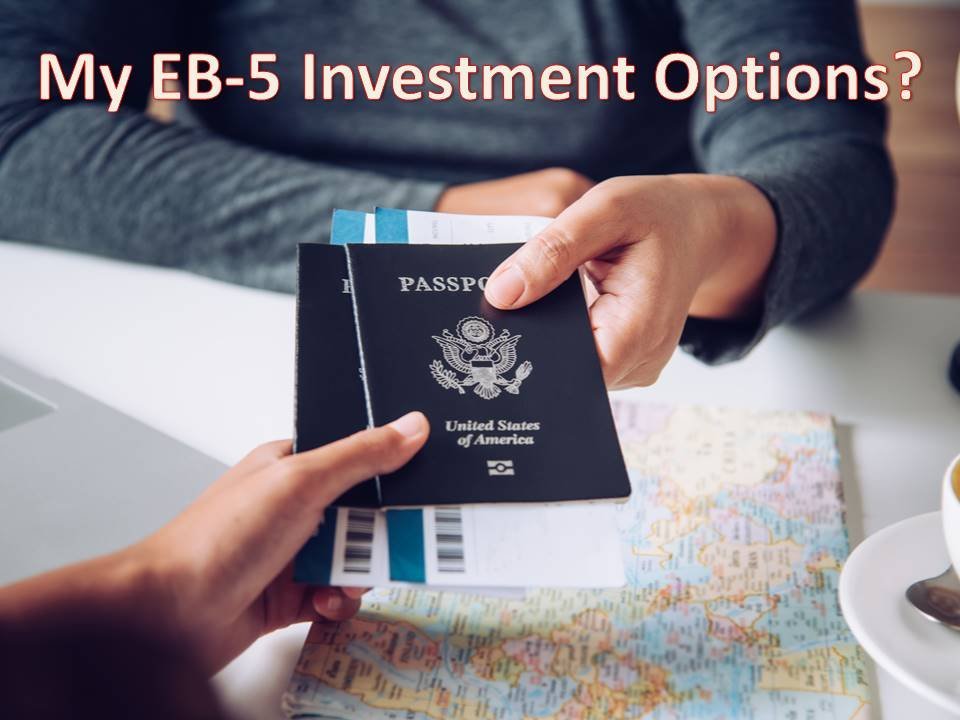Understanding Investing in EB-5 and different financial structures?
The pathway to USA Green Card by investment, also popularly known as the EB-5 investment visa program, is considered the easiest and safest way to obtain a Green Card. The law behind the EB-5 investor program is very simple but the creative financial structures set up by investors and related professionals make investing in EB-5 look like a very complex process.
The simple EB-5 law
- An EB-5 investor may make an investment of US$ 800,000 in a new commercial enterprise / new business which will create 10 new jobs provided the business is located in a rural area or high unemployment area or the project is an infrastructure project. In all other cases, the investment amount shall be US$ 1,050,000.
- The investment should be a business risk.
- The investment amount should come from a legitimate source, including earned money or a loan, or a gift.
This simple EB-5 regulation has been converted into complex financial structures, making the investment process seem very complicated for investors.
Here are the direct and indirect EB-5 investment scenarios:
Direct Investment
An investor can start on his own or partner with someone in the USA for a new business located anywhere in the USA, make an investment of US$ 1,050,000 and create 10 jobs. The investor will then qualify for a visa under the EB5 program. If this business is located in a rural area or high unemployment area, the investment amount will be US$ 800,000.
Investors who are capable of operating and managing a business may opt for this type of direct investment.
Indirect investment
In this case, several geographical areas in the USA may be combined and approval from USCIS is obtained to declare the area as a Regional Centre.
It is under this type of indirect investment, various financial structures are offered to investors for making an investment.
Here are some simple examples:
EB-5 Equity investments
A developer in the USA approaches USCIS to receive permission to declare a certain geographical area of the USA as a regional center. The developer then starts his project in this area and uses the EB-5 program to raise funds. The project will also be financed by a bank loan and the developer’s equity in the regional center as well.
In this type of project, the developer invites investors to make an investment as equity or as preferred equity partners.
Very few developers in the USA use this model. In such cases, there is one project and one developer.
EB-5 Debt model
A company raising funds for a business or project in the USA may approach USCIS to receive permission to declare a certain geographical area of the USA as a regional center.
Once the area is declared a regional center, the company may approach developers or businesses to set up a project there.
Rather than making a direct investment in the project company, in this case, a second company is created in which EB-5 investors make an investment as equity partners. This company then gives a loan to the project company to carry forward the project. Hence this is known as the Debt model.
This is the most popular model for EB-5 investment.
It is interesting to note that US companies assisting to raise funds for US developers or businesses also undertake marketing for EB-5 projects outside of the USA to attract EB-5 investors.
In this case, too there is one project and one developer but there is also an intermediary company, such as a fundraising company and/or EB-5 marketing company.
EB-5 Fund / Mutual Fund model
A company raising funds for a business or project in the USA may approach USCIS to receive permission to declare a certain geographical area of the USA as a regional center or the company may rent a regional center from another company who has already received approval from USCIS for a regional center.
Once the area is declared a regional center, the company may approach several developers or businesses to set up a project there.
The EB-5 fund may be created for just one project or business or several projects or businesses in a regional center.
Using EB-5 funds for several projects reduces the risk by diversifying the portfolio as in the case of regular mutual funds in financial markets.
This model is used by very few companies in the USA.
To protect EB-5 investors, the US government has introduced the new EB-5 Reform and Integrity Act. Thanks to this new regulation, we may see a major shift in the EB-5 marketplace. Many companies marketing EB-5 projects or raising funds or renting regional centers may face financial viability issues due to a long list of compliance requirements.
Depending on your personal aptitude, investors may decide to invest in EB-5 to receive a USA green card.
Legal disclaimer:
This blog is written in a very simplified manner for the purpose of making investors understand the various models related to EB-5 investment. Investors are advised to consult a qualified US immigration lawyer before making any decision regarding an EB-5 investment.
For Indian investors – Investing in an EB-5 visa from India is a legal matter and as per Indian law, only Indian lawyers having expertise in the EB-5 program must be consulted.





